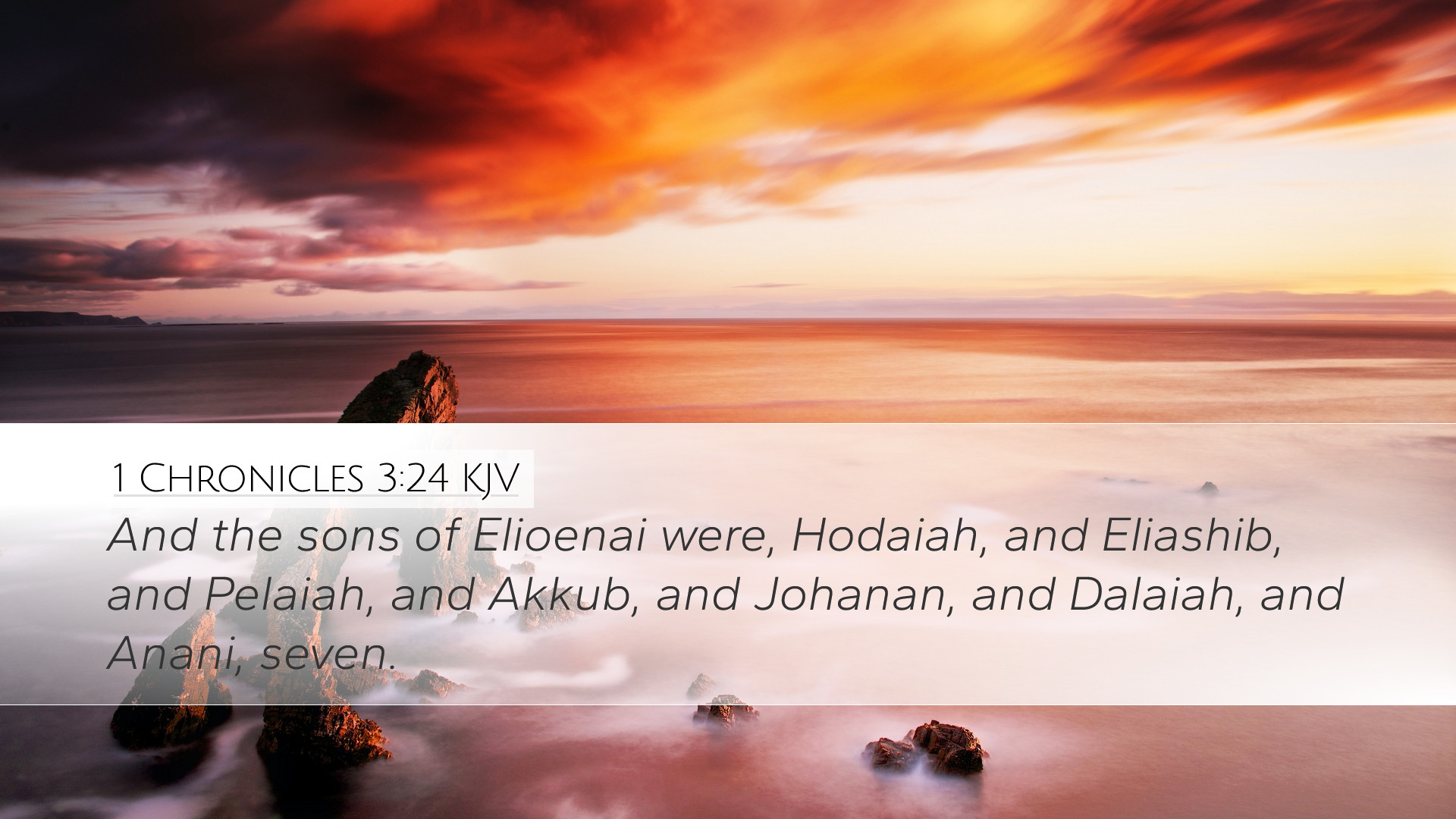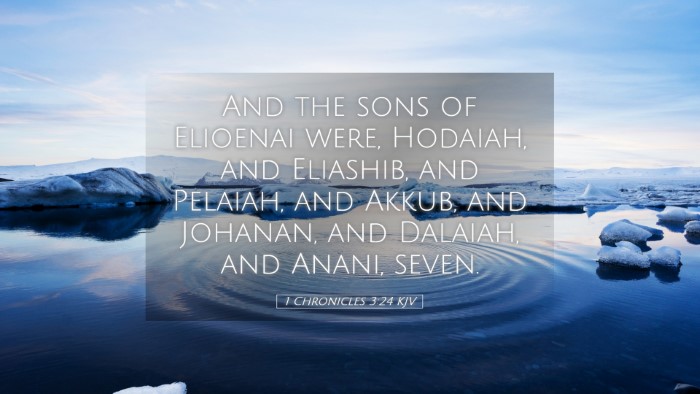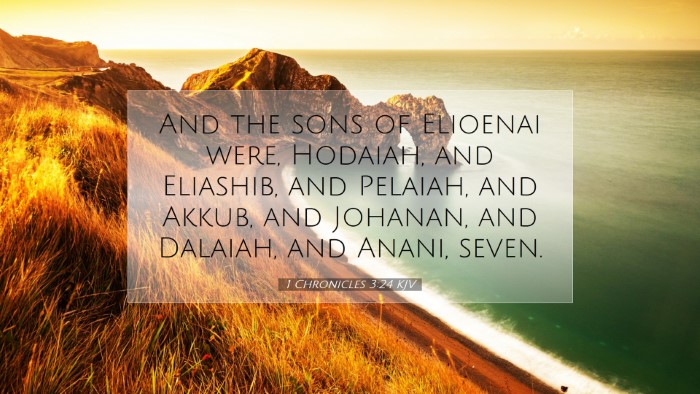Commentary on 1 Chronicles 3:24
Verse: 1 Chronicles 3:24 - "The sons of Jonathan; Merib-baal; and Merib-baal begat Micah."
Introduction
This verse provides a brief genealogical note concerning the descendants of Jonathan, the son of King Saul. The careful recording of lineage in this passage highlights the significance of familial legacy in the biblical narrative, particularly in the historical context of Israel.
Contextual Significance
The genealogies in the books of Chronicles serve both to affirm Israel's historical and theological identity and to establish the right of certain families to specific roles within the nation, especially concerning kingship and priesthood. The mention of Jonathan, a key figure in the life of David, sets the stage for understanding the dynamics between the houses of Saul and David.
Matthew Henry’s Insights
Matthew Henry emphasizes the importance of listing genealogies, as they serve not only to record history but also to reveal God’s providential hand throughout time. He notes:
- Jonathan's legacy is significant; it underscores his loyalty to David, and his son Merib-baal’s name reflects this important relationship.
- The name "Merib-baal" translates to "the one who contends with Baal," illustrating the spiritual heritage Jonathan hoped to pass on to his descendants.
Albert Barnes’ Commentary
Albert Barnes provides a detailed explanation of the names mentioned in this verse:
- Merib-baal is alternatively known as Mephibosheth, which represents Jonathan's connection to David. This name connection highlights themes of grace and preservation in the midst of familial conflict.
- Barnes also discusses the significance of Micah, the son of Merib-baal. Micah’s name, meaning "Who is like God?", suggests a reclamation of identity from the lineage of Saul.
Adam Clarke’s Analysis
Adam Clarke deepens the exploration by discussing the socio-political implications of this genealogy:
- Clarke points out that the mention of Jonathan’s descendants during the Chronicler’s time serves as a reminder of the past glory and the ongoing implications of the Davidic covenant.
- He highlights that the genealogical records validate the rights and claims of David’s lineage as it relates to the priestly order and the eventual coming of the Messiah.
Theological Implications
1 Chronicles 3:24 illustrates a profound truth about God’s faithfulness in establishing a lineage through which He fulfills His promises. Both the Old and New Testaments reflect on the significance of God's covenant with David and how it resonates throughout history.
Legacy and Continuity
This verse emphasizes the continuity of God's promises through the generations, highlighting the concept of spiritual inheritance. The legacy of Jonathan is not simply one of familial pride but also of faithfulness and worship, reflecting the covenant life that God desires for His people.
Lessons for Pastors and Theologians
Pastors and theologians can derive several lessons from this passage:
- Importance of Genealogy: Understanding the importance of lineage in the biblical context can inform our approach to teaching and preaching on God's promise.
- Faithfulness in Adversity: Jonathan’s commitment to David, illustrated here through his lineage, teaches about loyalty and trust amidst challenging circumstances.
- Spiritual Legacy: The spiritual complement to physical lineage displays the Christian understanding of how faith is passed down through generations.
Conclusion
In summary, 1 Chronicles 3:24 encapsulates profound historical, theological, and practical truths that resonate through scripture. The portrayal of Jonathan's descendants serves as a testament to God's enduring faithfulness and the rich tapestry of His redemptive plan.


